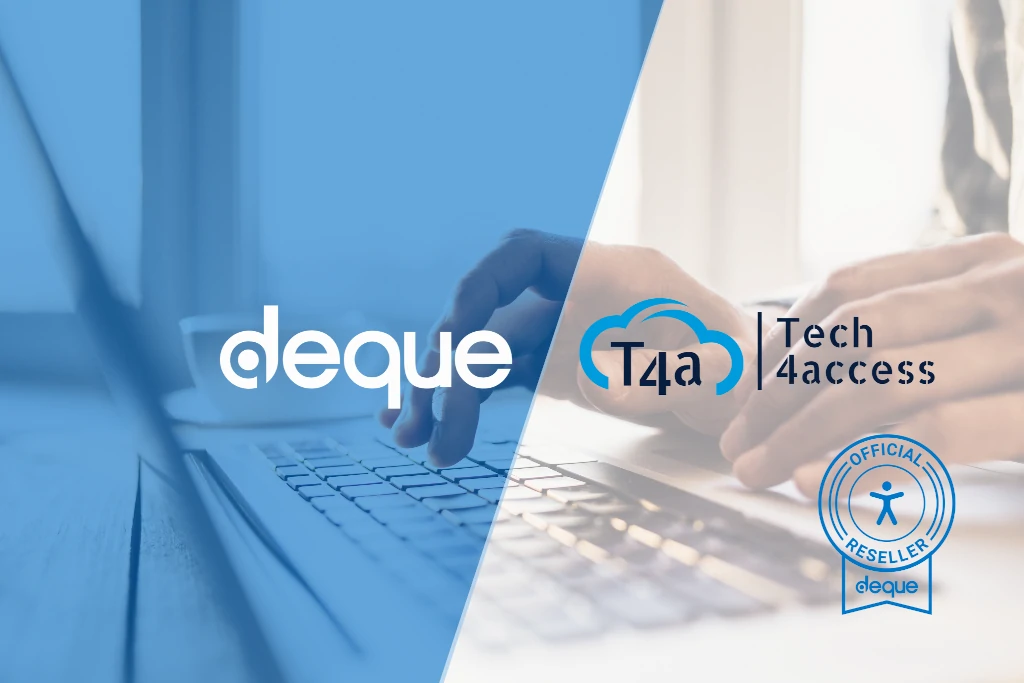At the beginning of 2005, France adopted Law No. 2005-102 aimed at guaranteeing access to IT tools for all users, in particular disabled people.
This is the origin of the Référentiel Général d’Accessibilité pour les Administrations (RGAA), the web accessibility directive in France. This Directive sets out the regulatory guidelines to be followed and provides a verification method for the accessibility of the websites concerned, and the subjects that must comply with the digital accessibility laws.
The RGAA, currently in version 4.1, is based on the WCAG 2.1 guidelines and the EN 301 549, the European technical standard, and includes certain additional accessibility requirements, such as unit testing and the publication of an accessibility declaration.
It is a way of ensuring that Information Technology (IT) services, particularly websites and web-based applications, are accessible to everyone, including disabled users.
These standards aim to eliminate barriers to digital accessibility, enabling everyone to exercise their right to access services and public information using new technologies.
Technological developments have reinforced the need to bridge the digital divide, in compliance with national and international standards, as well as web accessibility standards.
For this reason, it is essential to take compliance with the requirements and recommendations issued by the competent web accessibility bodies seriously.
Who must comply with the RGAA?
Digital accessibility is part of an equality approach that must guarantee the fundamental right of disabled people to access digital information and services.
In France, digital accessibility is mandatory and is governed by two main texts:
- Article 47 of the so-called “Disability Act” of 11 February 2005.
- The Implementing Decree of 24 July 2019, on the accessibility of online public communication services for people with disabilities, which sets out the legal obligations in terms of digital accessibility.
These texts define the entities subject to the legal obligations of digital accessibility, the relevant digital services and the penalties for non-compliance with the law.
As a result, the RGAA applies to a number of very important segments of society:
- Legal entities governed by public law: the State, local authorities, public establishments, etc.
- Legal entities to which a public service mission is delegated or which have a mission of general interest: public transport companies, water and sanitation companies, tourist offices, cultural structures, etc.
- Private companies with sales in excess of €250 million generated in France and calculated on the basis of the average of the previous three years. This amount is defined by the implementing decree of 24 July 2019.
This highlights a compliance obligation specifically applied to public sites and sites of public interest.
Web accessibility requirements in accordance with Decree no. 2019-768 of 24 July 2019
The Act establishes the following requirements to ensure full access to information and services by removing barriers to accessibility on the net, promoting:
- RGAA compliance for websites and mobile applications.
- Declaration of accessibility.
- Setting up dedicated contact and support facilities for users within a reasonable timeframe.
- Mandatory mention of RGAA compliance status on the home page.
- Publication of a multi-annual accessibility plan for a maximum of 3 years. This is a roadmap setting out the entity’s policy on digital accessibility and detailing the resources deployed.
It is important to emphasise that the legal requirements for digital accessibility apply to all websites:
- Internet, intranet and extranet sites.
- Mobile applications.
- Web-based software.
- Digital street furniture (e.g. interactive terminals).
- Content (including PDF documents and videos).
- Penalties for breaches.
Compliance with the RGAA over time
The laws are in force, and all the entities concerned by the legal obligation must comply with the legal obligations of digital accessibility.
The compliance deadlines laid down in the decree have already passed.
What are the penalties for non-compliance and the benefits of compliance?
If the RGAA compliance status of the site or application is not displayed on the home page, an annual administrative penalty will be imposed.
The amount of this penalty is set by Article 8 of Decree no. 2019-768 of 24 July 2019:
- Municipalities with fewer than 5,000 inhabitants are fined €2,000 for each offence detected.
- Fines of €20,000 for other entities involved in the infringement.
However, it is important to stress that the rigour of the regulations is due to the fact that the accessibility of mobile applications and websites benefits the whole of society, not just people with disabilities.
Complying with the law also displays corporate responsibility and social consciousness , while complying with legal obligations.As well as being a responsibility shared by public and private players, this brings significant benefits for society as a whole.
What is the best way to comply with the RGAA?
At Tech4access, we have developed the SIA® (Service for Integrated digital Accessibility). In many countries, this service has become the benchmark for providing total digital accessibility for a website or mobile application, while guaranteeing compliance with national and international standards.
That’s why SIA® is the recommended service for complying with the RGAA, the perfect opportunity to get advice on how to align yourself with the legal requirements. If you have any questions or need advice on this topic, we are here to ensure compliance and contribute to greater digital inclusion.





